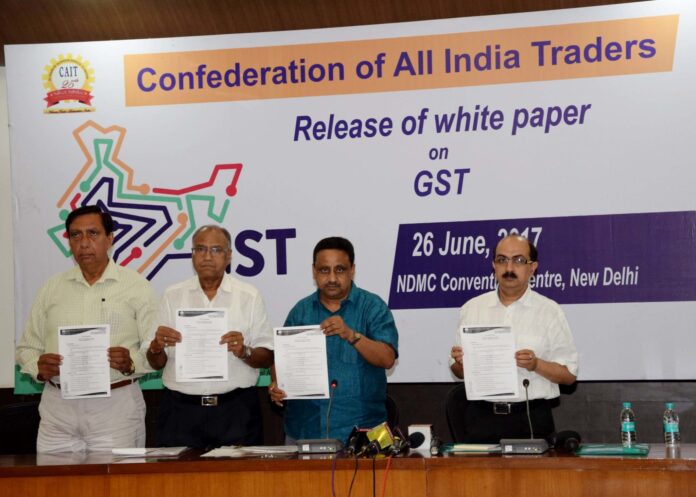In the run up to GST implementation, both FIHMTA and CAIT are spearheading training and education initiatives for the trading fraternity on GST compliance and adoption of digital payments
The Federation of Hardware Manufacturers & Traders Welfare Association (FIHMTA) organised a seminar in New Delhi, which was attended by members of the manufacturing and trading community of the industry. The objective of the seminar was to educate the community about GST – fundamentals, advantages and compliance – as well as to formulate a strategy and articulate their grievances/suggestions before the government. The need to revive FIHMTA and make it a credible body was a unanimous decision.
The association had invited Praveen Khandelwal, secretary general of Confederation of All India Traders (CAIT) to address the session. Khandelwal, while explaining the advantages and other nuances of the impact of GST on trade, emphasised the need to be technologically empowered. He made it clear that fraudulent practices will no longer work.
A common theme that came up during the seminar was that of high tax rate that the hardware industry will have to pay post GST. The rate fixed by the GST Council for hardware products is as high as 28%, and the association is of the view that it should be lower. “We can make a representation to the government and ask them to lower the rates,” said Khandelwal. He explained that the goal can be achieved if the industry can leverage the ‘affordable housing’ concept and bring players from other segments such as paints, sanitaryware, tiles, faucets, decorative wall paper, etc, under a common roof and present their case before the government.
“We demand an interim period of nine months ie from 1st July 2017 to 31st March 2018 and no penal action may be taken against any trader for procedural lapses. However, tax evaders or willful defaulters may be dealt with in accordance with law,” said Khandelwal. On behalf of CAIT and FIHMTA, he said that he has suggested that GST facilitation centres may be opened in offices of trade associations to help traders comply GST with digital technology.
Rajesh Bansal, founder member of FIHMTA, agreed that the association needs to work in tandem with other related segments and better articulate its strategy to make a coherent argument before the government. “We are all for GST, it’s just that we fear the abnormalities,” he said, adding, “Isolation will not work anymore; we need to work and align with related segments to make a viable case.”
On its part CAIT, continuing with its commitment of creating awareness to facilitate fast track implementation of GST, unveiled its ‘GST White Paper’. The document, consisting of all the important aspects of GST and its compliance,is meant to empower traders with the required knowledge pertaining to GST and to make traders and others GST compliant.
In the run up to GST, CAIT has already taken note of the ground reality that a large number of traders across the country still remain unaware about the basic fundamentals of GST and the compliance obligations. Apart from educating traders and other sectors on the core factors of GST, the white paper released also represents CAIT’s viewpoint on the new law and helps stakeholders understand the nation’s biggest tax reform in a cohesive manner.
Unveiling the GST White Paper, CAIT’s national president B C Bhartia and secretary general Praveen Khandelwal in a joint statement said, “While we are nearing the date of implementation of GST, yet a large number of traders across the country still remain unaware of the basic fundamentals of GST and the compliance obligations. Through this white paper, we intend to disseminate vital information on GST to traders and people in general. It is important for the traders and all to understand that GST being a technology-based taxation system is much different from the current VAT, Excise & Services Tax regime. Stated to be a landmark reform in indirect taxation system of the country, it has several aspects of compliance which can be fulfilled only through digital technology.”
For seamless GST implementation, CAIT has already taken a big leap forward in its attempt to train and educate the trading fraternity on GST compliance and adoption of digital payments. It launched a national campaign in May 2017 in association with MasterCard, HDFC Bank and Tally Solutions under which market camps, seminars and workshops are being organised in close vicinity of small traders across the country.
CAIT has also launched Digi Varta national campaign including ‘DIGITAL RATH’ to educate and empower small business and the trading community on enhanced adoption of digital payments. These are intended to help traders’ transition towards the GST regime.
')}


